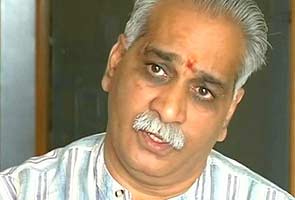
Mumbai, December 2: After facing flak over the arrests of two Air India employees for their posts on Facebook, the Mumbai Police, in a bizarre step, has booked the man who had filed a complaint against the duo.
The move against the complainant, Sagar Karnik, comes after cabin crew members Mayank Mohan Sharma and KVJ Rao wrote to the Mumbai Police, seeking action against the policemen who had arrested them in May this year. The duo had allegedly shared lewd jokes about politicians, made derogatory comments against the Prime Minister and insulted the national flag in their posts. But they, in the letter, contended that they had merely shared content that was easily available on the Internet.
"Now if they have filed an FIR against Sagar Karnik, it's a clear-cut case that there was no need to arrest us in the first place. It is we who have provided the documents and it is we who have investigated the case for them," Mr Rao said.
He along with Mr Sharma were picked up by the Cyber Cell wing of the city police in a midnight raid and had to spend 12 days in custody. Mr Rao had earlier alleged that the police had acted under political pressure from NCP politician Kiran Pawaskar.
"What it (Sagar Karnik booked) reflects is the shoddy investigation done by the Investigating Officer Mr Ghosalkar. He picked us up at 1:30 am on a weekend so that we could not be granted bail, illegally impounded our passports and ID cards. It's a clear-cut case where the policeman was either toeing the line of the politician or his higher-ups. In spite of writing to the Commissioner, there has been no action till date," Mr Rao said.
It took the police nearly two months to make the arrests after lodging the Firrst Information Report (FIR) in March. The two had been booked under the controversial 66(A) and 67 sections of the Information Technology Act. Mr Sharma had said the cyber cell wing investigated the complaint for over a year but never summoned them even once.
They were suspended following the arrests and resumed work only earlier this week. They have been asked to undergo a refresher course.
The plight of the Air India staffers hit headlines even as a similar controversy was raging following the arrests of two young women in Palghar outside Mumbai over a Facebook post. One of them had protested against the shutdown in Mumbai on the day of Bal Thackeray's funeral while the other had liked the post. Although the girls were released on bail soon after the arrests, the incident sparked nationwide outrage, prompting the Maharashtra government to order a probe that later resulted in the suspension of two policemen.





Comments
Add new comment